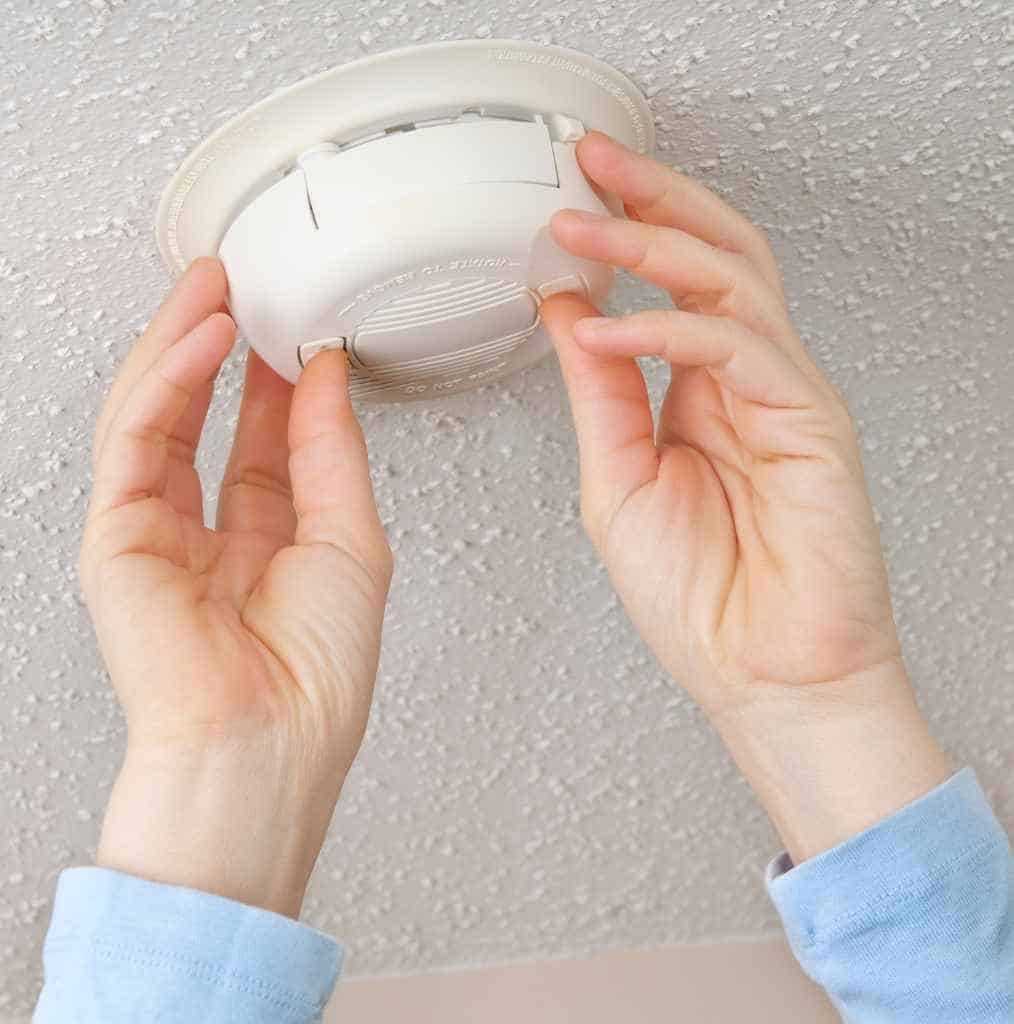Can a humidifier set off a smoke alarm? This is a question that many people have, and the answer is yes, it can.
Smoke alarms are designed to go off when they sense smoke in the air, and since humidifiers put moisture in the air, they can set off the alarm.
In most cases, though, it’s not the humidifier that’s to blame but rather the way it’s being used. If you’re using your humidifier correctly, there’s no need to worry about setting off your smoke alarm.
Let’s Begin,
Can A Humidifier Set Off A Smoke Alarm?
There are two types of smoke detectors Ionization smoke detectors and Photoelectric smoke detectors. In the letter section, we will get a quick overview of them.
A humidifier is a device that increases the air’s humidity level. While they can benefit people suffering from dry skin or respiratory problems, some humidifiers can trigger smoke detectors.
Smoke particles can change electrical conduction in Ionization smoke detectors. The detector trigger when an electrical conduction change occurs in a smoke detector.
Photoelectric smoke detectors trigger when light is scattered by the smoke particles.
In most cases, Ionization smoke detectors are the ones that trigger when using a humidifier.
How to Reduce False Triggering of Smoke Detectors by Humidifiers?
While humidifiers are great for improving the air quality in your home and preventing dry skin, they can also cause false triggering of smoke detectors.
When the humidity level in a room gets too high, it can create condensation on the smoke detector sensor, which can cause the alarm to go off.

There are a few things you can do to reduce the risk of false triggering, such as:
- Keep the humidifier at least five feet away from the smoke detector.
- Use a humidifier with an automatic shut-off feature to prevent the humidity level from getting too high.
- Clean the humidifier regularly to prevent mold and mildew growth.
Also Read: How Do Ultrasonic Humidifiers Work?
Smoke Detectors Overview
Smoke detectors are an important part of any home fire safety plan. While there are many different types and models on the market, they all serve the same basic purpose: to alert occupants to the presence of smoke, giving them time to escape.
Here is a quick overview of how smoke detectors work:
Most smoke detectors contain a photoelectric sensor activated by smoke particles in the air. When the sensor detects smoke, it triggers an alarm.
Some models also contain a heat sensor, which can detect rapid temperature changes that may indicate a fire.
It is important to test your smoke detector regularly to ensure it is working properly. Many models come with a test button that simulates the presence of smoke, making it easy to check the sensor.
Ionization Smoke Detectors
Ionization smoke detectors are a type of fire alarm that uses a small amount of radioactive material to detect the presence of smoke in the air.
These detectors are very sensitive and can give an early warning of a fire, but they can also be set off by cooking smoke or steam.
Ionization detectors are not as common as other smoke detectors, but they can be useful tools to protect your home from fire.
Photoelectric Smoke Detectors
Photoelectric smoke detectors are an important part of any fire safety plan. These devices use a light sensor to detect smoke and can be very effective at spotting fires in their early stages.
Photoelectric detectors are often better at detecting smoldering fires, which can be more difficult to spot with traditional detectors.
That’s why having both types of detectors in your home is important. While photoelectric detectors may cost a bit more than traditional detectors, they could ultimately save your life.
FAQ
Can Cool mist humidifiers set off smoke alarms?
Yes. they can set smoke alarms. If you place a humidifier too close to the smoke alarm. Also, high humidity can also set off smoke alarms.
Can a humidifier cause condensation on the smoke detector sensor?
When the humidity level in a room gets too high, it can create condensation on the smoke detector sensor, which can cause the alarm to go off.